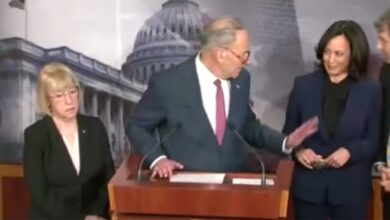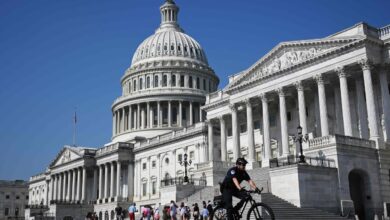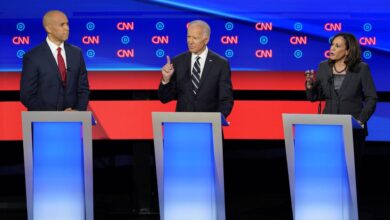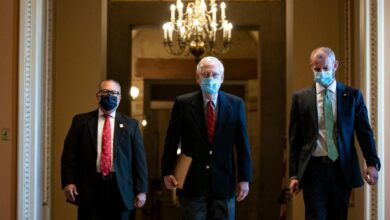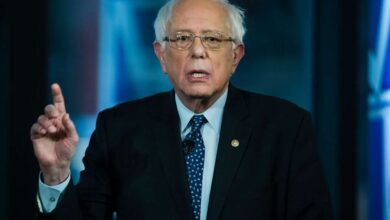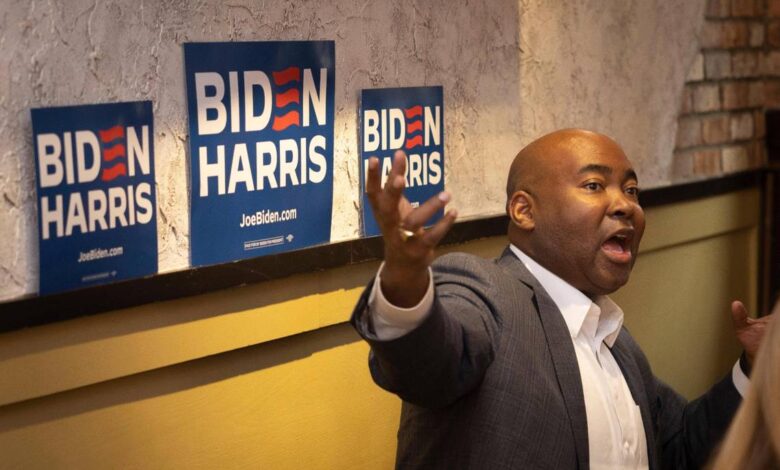
DNC Boss Perez Refuses to Resign After Iowa Debacle
DNC Boss Perez says he will absolutely not resign following Iowa debacle. The Iowa caucuses, meant to be a grand kickoff to the Democratic presidential nomination process, turned into a chaotic mess. The app designed to tally results crashed, leading to delays and a scramble to understand what had happened.
This debacle has put Perez’s leadership under intense scrutiny, with many questioning his ability to guide the DNC through the crucial upcoming election.
Amidst the calls for his resignation, Perez has stood firm, stating that he will remain in his position. He argues that the Iowa fiasco was a technical failure, not a reflection of his leadership. He points to the DNC’s efforts to address the issues and ensure that future contests run smoothly.
But the question remains: can Perez restore confidence in the DNC and navigate the party towards victory in the upcoming election?
The Iowa Debacle
The Iowa caucuses, traditionally the first major contest in the US presidential election cycle, were marred by technical failures and delays in reporting results in 2020. This unprecedented event, dubbed the “Iowa Debacle,” sparked widespread criticism of the Democratic National Committee (DNC) and its chair, Tom Perez.
The debacle raised concerns about the DNC’s ability to manage a crucial election process, casting a shadow over the party’s ability to mobilize voters and run a smooth and transparent primary election.
The Timeline of the Iowa Debacle
The Iowa caucuses were plagued by a series of issues that culminated in a delayed and inaccurate reporting of results. Here’s a timeline of key events:
- February 3, 2020:The Iowa caucuses were held, with voters participating in a traditional precinct-based system.
- February 3, 2020:The Iowa Democratic Party (IDP) experienced a technical failure with its reporting app, causing delays in the reporting of results. This issue also led to the inability to accurately calculate the number of delegates awarded to each candidate.
- February 4, 2020:The IDP announced that the results of the caucuses would be delayed due to the technical problems. The party also released partial results, which were later found to be inaccurate.
- February 5, 2020:The IDP released a revised set of results, but these were still incomplete and subject to further revisions. The delay and uncertainty surrounding the Iowa caucuses cast doubt on the integrity of the process.
- February 6, 2020:The IDP released a final set of results, but these were still incomplete and subject to further revisions. The delay and uncertainty surrounding the Iowa caucuses cast doubt on the integrity of the process.
Criticism of Tom Perez’s Leadership
The Iowa debacle sparked significant criticism of Tom Perez’s leadership of the DNC. Critics argued that the technical failures and delays in reporting results were indicative of a lack of preparedness and oversight on the part of the DNC. Some critics also questioned Perez’s ability to effectively manage the party’s operations, arguing that the Iowa debacle demonstrated a lack of leadership and organizational skills.
Others pointed to the fact that the DNC had been warned about potential problems with the reporting app, but failed to take adequate steps to address these concerns.
“The Iowa caucuses were a disaster, and Tom Perez should be held accountable,” said one critic. “This was a complete failure of leadership, and it’s clear that Perez is not the right person to lead the DNC.”
Perez’s Response and Rationale: Dnc Boss Perez Says He Will Absolutely Not Resign Following Iowa Debacle
Following the chaotic Iowa caucuses, Democratic National Committee (DNC) Chair Tom Perez faced intense pressure to resign. However, in a defiant statement, Perez declared he would not step down, citing his commitment to leading the party through the 2020 election.
He asserted that the Iowa debacle was a “learning experience” and that the DNC would implement necessary changes to prevent similar occurrences in the future.Perez’s decision to remain in his position has sparked significant debate. He has defended his decision, emphasizing the need for continuity and stability within the party during a critical election year.
He also highlighted the significant progress the DNC has made under his leadership, particularly in terms of expanding the party’s base and mobilizing grassroots support.
Reasons for Staying
Perez’s rationale for staying on as DNC Chair can be summarized as follows:
- Continuity and Stability:Perez argued that a change in leadership at this juncture would disrupt the party’s efforts to defeat President Donald Trump. He stressed the importance of maintaining a consistent and experienced leader to guide the party through the complex challenges of the 2020 election.
- Progress Made Under His Leadership:Perez pointed to the DNC’s achievements under his leadership, including increased voter registration, a more diverse party base, and enhanced grassroots engagement. He maintained that these accomplishments demonstrated his effectiveness as a leader and justified his continued presence at the helm of the party.
- Commitment to Addressing the Iowa Debacle:Perez acknowledged the shortcomings of the Iowa caucuses and expressed his commitment to addressing the issues that led to the chaos. He stated that the DNC would implement necessary changes to ensure a smooth and accurate process in future elections.
Perez’s defiance in the face of the Iowa debacle is a stark reminder of the political climate, where resilience often trumps accountability. This unwavering stance is in stark contrast to the anxieties surrounding the Indo-Pacific, where the potential for conflict looms large.
As with two regional wars does security in the Indo-Pacific hang in the balance , Perez’s steadfastness might seem like a luxury, but it highlights the internal struggles within the Democratic party that will likely continue to play out regardless of the external pressures.
Comparison with Similar Situations
Perez’s decision to remain in his position echoes similar situations in the past where party leaders have weathered significant controversies. For instance, following the 2016 election, Republican National Committee Chair Reince Priebus faced criticism for his role in the party’s defeat.
However, he remained in his position, citing the need for continuity and stability within the party. Similarly, Democratic National Committee Chair Howard Dean faced scrutiny after the 2004 election, but he remained in his position, citing the importance of rebuilding the party for the future.
Potential Implications
Perez’s decision to remain in his position has potential implications for the 2020 election. Some argue that his continued leadership could be a distraction for the party, as it focuses attention on the Iowa debacle rather than on defeating President Trump.
Others believe that Perez’s experience and knowledge of the party’s infrastructure will be crucial in ensuring a smooth and successful election process. Ultimately, the impact of Perez’s decision will depend on his ability to address the concerns raised by the Iowa caucuses and to effectively lead the party towards victory in the 2020 election.
Impact on the DNC
The Iowa caucus debacle and Perez’s subsequent refusal to resign have cast a long shadow over the Democratic National Committee (DNC), raising serious questions about its leadership and its ability to effectively navigate the upcoming presidential election. While the immediate impact is a loss of public trust and confidence in the DNC’s ability to conduct a fair and transparent election, the long-term consequences could be far more significant, potentially affecting the DNC’s overall strategy and operations.
Impact on the DNC’s Strategy and Operations
The Iowa debacle has highlighted several key challenges facing the DNC, particularly regarding its ability to effectively manage and conduct primary elections. The issues range from the technical flaws in the reporting app to the lack of transparency in the process, and the DNC’s response to these issues has only further eroded public confidence.
These challenges have forced the DNC to re-evaluate its strategy and operations, focusing on improving transparency, accountability, and the overall integrity of the election process. The DNC has also been forced to confront the potential for future disruptions to the primary calendar, as the Iowa caucuses have been a long-standing tradition and a crucial element in the presidential nominating process.
The DNC boss’s unwavering stance following the Iowa debacle is a testament to the power of leadership, but it also highlights the need for a strategic approach to digital engagement. In this age of heightened privacy concerns, it’s crucial to understand how to do digital marketing in the age of privacy effectively.
By embracing data-driven strategies that respect user privacy, political campaigns can navigate the evolving digital landscape and connect with voters in a meaningful way. Perhaps Perez’s resilience will be fueled by the insights gained from this new era of digital engagement.
Challenges Facing the DNC
The Iowa caucus debacle has exacerbated existing challenges faced by the DNC, creating a more complex landscape for the organization. The following table compares the key challenges before and after the Iowa caucuses:| Challenge | Before Iowa Caucuses | After Iowa Caucuses ||—|—|—|| Maintaining Public Trust | Facing challenges due to past controversies and perceived bias | Significantly eroded public trust due to the debacle and the response || Ensuring Election Integrity | Ongoing efforts to ensure fair and transparent elections | Increased pressure to address concerns about election security and accuracy || Managing Primary Calendar | Challenges in coordinating and managing a complex primary schedule | Added pressure to address the impact of the Iowa debacle on the remaining primaries || Fundraising and Resource Allocation | Challenges in securing sufficient funding for operations | Potential impact on donor confidence and fundraising efforts || Communicating with Voters | Challenges in effectively engaging and communicating with voters | Need to address concerns about the DNC’s ability to manage elections effectively |
Impact on the Upcoming Presidential Election
The Iowa debacle has the potential to impact the upcoming presidential election in several ways. Firstly, it could lead to increased voter apathy and disengagement, as voters lose faith in the electoral process. Secondly, it could create a more volatile and unpredictable election cycle, as the lack of trust in the DNC’s ability to conduct fair elections could lead to increased scrutiny and potential challenges to the results.
The DNC boss’s defiance in the face of the Iowa debacle is a stark reminder that even in the face of adversity, some hold onto power with an iron grip. It’s a reminder that power dynamics are complex, and the fight for control can be fierce.
This is perhaps even more true in the realm of technological advancement, where the potential for misuse is always lurking, as evidenced by the recent warning that AI drug discovery systems might be repurposed to make chemical weapons.
Just as the DNC boss is clinging to his position, we must be vigilant in ensuring that powerful tools like AI are used for good, not for harm.
Lastly, it could impact the overall narrative of the election, as the focus shifts from the candidates’ policy positions to concerns about the integrity of the electoral process.
Impact of Perez’s Leadership
Perez’s decision to remain in his position despite the Iowa debacle has raised questions about his leadership and his ability to effectively guide the DNC through this crisis. While some argue that his experience and knowledge are crucial to navigating this difficult period, others believe that his refusal to resign demonstrates a lack of accountability and undermines the DNC’s efforts to regain public trust.
Ultimately, the impact of Perez’s leadership will depend on his ability to address the challenges facing the DNC and restore public confidence in the organization.
Public Perception and Reactions
The Iowa debacle, coupled with Perez’s decision to remain in his position, has sparked a wave of reactions from various stakeholders. Political analysts, party members, and the general public alike have expressed their views on the situation, highlighting the potential impact on the DNC and the upcoming election.
Reactions from Stakeholders
The Iowa caucuses’ disastrous outcome has drawn criticism from various quarters. Political analysts have expressed concerns about the DNC’s ability to manage future elections, citing the Iowa debacle as a sign of organizational weakness. Some have even called for Perez’s resignation, arguing that his continued leadership would undermine public trust in the DNC.
Party members, too, have expressed mixed reactions. While some have defended Perez, citing his commitment to the party and his efforts to improve the voting process, others have voiced their disappointment and frustration with the Iowa debacle. Many have called for a thorough investigation into the events leading up to the caucuses and for accountability to be held.The general public, meanwhile, has reacted with a mix of amusement, anger, and skepticism.
Many have expressed concerns about the integrity of the voting process and the DNC’s ability to ensure fair and accurate results. The Iowa debacle has further fueled public distrust in the political system, which could have significant implications for voter turnout in the upcoming election.
Impact on Public Trust in the DNC
The Iowa debacle has undoubtedly damaged public trust in the DNC. The botched results, the subsequent delays in reporting, and the lack of transparency have led many to question the DNC’s competence and integrity. This loss of trust could have far-reaching consequences, potentially affecting voter turnout and the overall legitimacy of the Democratic Party.
Implications for Voter Turnout
The Iowa debacle could potentially deter voters from participating in the upcoming election. The perception of a flawed voting system and a lack of confidence in the DNC’s ability to conduct fair elections could lead some voters to feel disillusioned and disengaged.
This could result in lower voter turnout, potentially impacting the outcome of the election.
Arguments for and Against Perez’s Decision
The decision to remain in his position has been met with both support and criticism.
| Arguments for Perez Remaining | Arguments Against Perez Remaining |
|---|---|
| He has a strong commitment to the Democratic Party and a proven track record of leadership. | The Iowa debacle demonstrates a lack of competence and leadership on his part. |
| He is committed to addressing the issues that led to the Iowa debacle and improving the voting process. | His continued presence undermines public trust in the DNC and could hurt the party’s chances in the upcoming election. |
| Replacing him at this critical juncture would be disruptive and could further damage the party’s image. | His resignation would send a strong message that the DNC is taking responsibility for its failures and is committed to restoring public trust. |
Future of the DNC
The Iowa caucus debacle has cast a long shadow over the Democratic National Committee (DNC), raising serious questions about its future. While Perez’s decision to stay on might seem like a sign of defiance, it could also be a catalyst for significant changes within the organization.
Potential Changes and Reforms
The Iowa debacle has highlighted the need for the DNC to address critical issues within its organizational structure and processes. This includes:
- Improving the accuracy and transparency of the vote-counting process:The Iowa caucuses were plagued by technical issues and delays in reporting results, leading to widespread confusion and distrust. The DNC must invest in robust and reliable technology to ensure accurate and timely reporting of results in future elections.
- Ensuring fair and equitable representation for all candidates:The Iowa caucuses have historically favored candidates with strong grassroots organizations and a focus on early campaigning. The DNC needs to consider alternative methods of selecting delegates that are more inclusive and representative of the diverse Democratic electorate.
- Strengthening communication and outreach to voters:The DNC needs to improve its communication strategies to better connect with voters and address their concerns. This includes using social media platforms effectively and engaging with voters in a more personalized and meaningful way.
Potential Implications of Perez’s Decision
Perez’s decision to remain in his position has implications for the future of the DNC. It could lead to:
- Increased scrutiny and pressure on the DNC:With Perez remaining in his position, the DNC will face increased scrutiny and pressure from both within the party and from the public. This could lead to a more critical and demanding environment, potentially hindering the organization’s ability to effectively manage internal conflicts and implement necessary reforms.
- Division within the Democratic Party:Perez’s decision could further divide the Democratic Party, with some supporting his leadership and others calling for his resignation. This division could weaken the party’s ability to present a unified front in the upcoming election and could create challenges in coordinating campaign efforts.
- Erosion of public trust:Perez’s decision to stay on could further erode public trust in the DNC, particularly among voters who believe that he is not the right person to lead the organization through this difficult period. This loss of trust could make it harder for the DNC to mobilize voters and raise funds for the upcoming election.
Strategies to Regain Public Trust and Support, Dnc boss perez says he will absolutely not resign following iowa debacle
To regain public trust and support, the DNC needs to:
- Acknowledge the shortcomings of the Iowa caucuses and take responsibility for the failures:The DNC needs to publicly acknowledge the issues that occurred in Iowa and apologize for the inconvenience and frustration caused to voters and candidates. This will demonstrate a willingness to take accountability and make necessary changes.
- Implement concrete reforms to address the issues identified in the Iowa caucuses:The DNC needs to develop and implement a clear plan for reforming its processes and procedures to prevent similar problems from occurring in the future. This plan should be transparent and publicly accessible, demonstrating the DNC’s commitment to addressing these issues.
- Engage with voters and stakeholders in a meaningful and transparent way:The DNC needs to actively listen to voters and stakeholders and engage in open and honest dialogue about the challenges facing the party. This includes soliciting feedback on proposed reforms and providing regular updates on the progress being made.
Challenges Facing the DNC
The DNC faces several challenges in the future, including:
- Maintaining unity within the Democratic Party:The Iowa debacle has highlighted the internal divisions within the Democratic Party. The DNC will need to find ways to bridge these divides and foster a sense of unity within the party to effectively campaign and govern.
- Responding to the changing political landscape:The political landscape is rapidly changing, with the rise of social media and the increasing polarization of the electorate. The DNC needs to adapt its strategies and communication to effectively engage with voters in this new environment.
- Competing with the Republican Party:The Republican Party has become increasingly effective at mobilizing its base and winning elections. The DNC needs to develop a strong and effective strategy to counter the Republican Party’s tactics and win back voters.
Ending Remarks
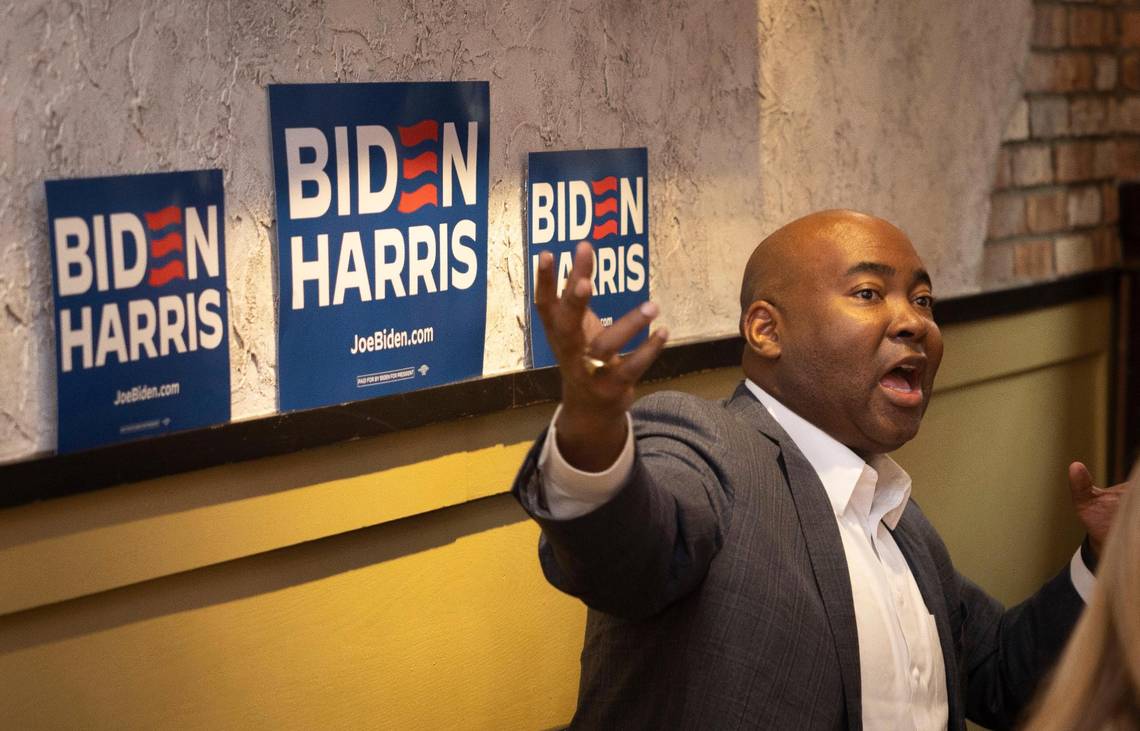
The Iowa debacle has shaken the Democratic Party, exposing vulnerabilities and raising concerns about the DNC’s preparedness for the upcoming election. Perez’s decision to stay on, while controversial, highlights the complexities of leadership during a time of crisis. Only time will tell if he can successfully steer the DNC through these turbulent waters and rally the party towards victory in November.

